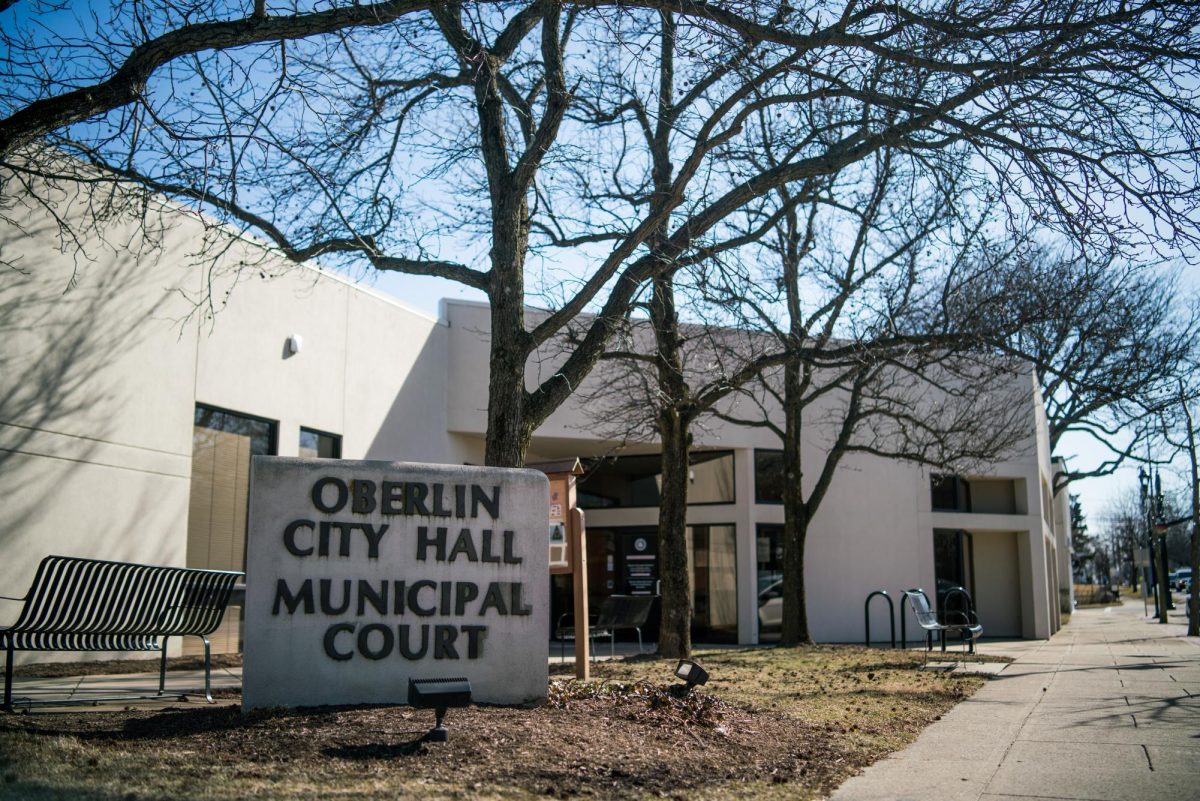Charter Review Committee Presents Recommendations to Council
On Monday, Nov. 20, the Oberlin City Council held a work session to hear recommendations from the Charter Review Committee. The committee convened to review and recommend changes to the City Charter, and has been meeting since February. The charter, which was approved in 1954, provides rules under which the City government operates. If approved by the Council, the changes will be decided on by voters in a special election concurring with the 2024 Ohio primary elections on Mar. 19, 2024. The proposals were presented to the Council by Oberlin Law Director John Clark, who worked with the Review Committee.
Councilmembers discussed whether they should pass the ordinances to place the charter amendments on the ballot in the 2024 election immediately or wait until the next council meeting. The amendments will have to be passed as an emergency measure in order to give the clerk adequate time to submit the amendments to the Lorain County Board of Elections; however Clark recommended that the Council wait until next week to hold their final vote. One ordinance, clarifying that failed legislation could be brought back to the Council, passed on first reading with a unanimous vote. The other ordinances received unanimous support from the Council on first reading, but will be reconsidered at the next Council meeting on Dec. 4.
Charter Committee Proposes Staggered Four Year Terms for Councilmembers
One change proposed is for City Council terms to be expanded from two to four years. Clark said at the meeting that the Review Committee felt that two year terms made it difficult for new councilmembers to focus on learning their job when they face an imminent reelection campaign. The Committee also proposed that the terms of council be staggered. Clark said this change is recommended to prevent a situation in which there were all new members on Council.
To accommodate staggered four-year terms, the Review Committee suggested that term limits of Councilmembers should change from five consecutive two-year terms to three consecutive four-year terms and that Councilmembers appointed to fill a vacancy will serve until the next municipal election, rather than the remainder of the entire term. They also recommended the language of the Charter should be amended to specify that raises to Council wages will not go into effect until each councilmembers term has expired.
Charter Recommendations Address Inconsistencies and Unclear Language
The Review Committee recommended that language be added to the Charter clarifying that items that had previously been voted down can be reintroduced to the Council at a later meeting and that permanent departments, offices, and committees are to be established by ordinance, while temporary government agencies can be established by a motion from the council.
Clark said both these amendments addressed unclear language of the current Charter and should not affect how City government functions. The Review Committee recommended the removal of the term “emergency ordinance” to describe an ordinance that goes into immediate effect. Clark said past Councilmembers have felt uncomfortable using the term emergency to describe situations in which it was advantageous to pass on short notice.
Also recommended was the removal of the section that specifies that City Council meetings must allow the public “to hear and observe the discussions and deliberations of all of the participating members of the Council.” Clark said that this was due to technological changes that provide for alternative methods of broadcasting Council meetings. He stressed that the City was still committed to having transparent City Council meetings, and is required by Ohio state law to allow the public to observe proceedings at regular meetings. Additional changes also specified that the finance manager should give the annual finance reports instead of the City manager, city managers should be allowed to sit on boards or commissions if they are required by ordinance, the discrimination clause should be expanded, and the civil service commission should be able to enact rules that come in conflict with state laws.
Council Approves Contracts with Police Union
The Council voted unanimously to approve two collective bargaining contracts with the Ohio Patrolmen’s Benevolent Association, one for sergeants and one for patrol officers. Oberlin Human Resources Administrator Rosalind Watson said negotiations with OPBA began in July and have been amicable.
Council Approves Changes to Employee Benefits
Additionally, the Council unanimously approved an ordinance authorizing a new vision insurance plan through VSP Vision Care for eligible City employees. Currently, employees are on a self-insured reimbursement plan. The switch to VSP would offer a more traditional vision insurance plan. The plan was selected and recommended by the City Healthcare Committee. It will be effective Jan. 1, 2024. The Council also unanimously approved an increase in the life insurance benefits for all non-bargaining employees from $15,000 to $50,000. This increase in benefits will also be effective Jan. 1.
Council Discusses Compensation of Councilmembers
The Council also discussed raising City Council wages. Council President Bryan Burgess pointed out that wages for City employees typically rise by two and a half percent a year, while Council wages have not risen since 2015. The Council decided to revisit the topic after the budget has been finalized. City Council wages only go into effect once the new Council is sworn in and the Council must approve raises a year prior, so compensation increases decided on by the current Council would not take effect until 2026.
Income Tax Codes Updated
The Council unanimously approved a new income tax code. State law passed in July requires municipalities to update their tax code to comply with changes in the Ohio Revised Code by Dec. 31. Changes include exempting minors from local taxation, a reduction in the penalty for late tax filers, and extending the deadline for municipal tax returns.
Council Accepts Bid to Renovate OMLPS Facility
The Council also unanimously voted to accept a bid of $309,710 from Williams Brothers Builders to renovate an Oberlin Municipal Light and Power Systems facility. Construction includes the replacement of the roof, siding, and concrete floor, and the installation of insulation and heating. Williams Brothers’ offer was the lowest of three bids.







